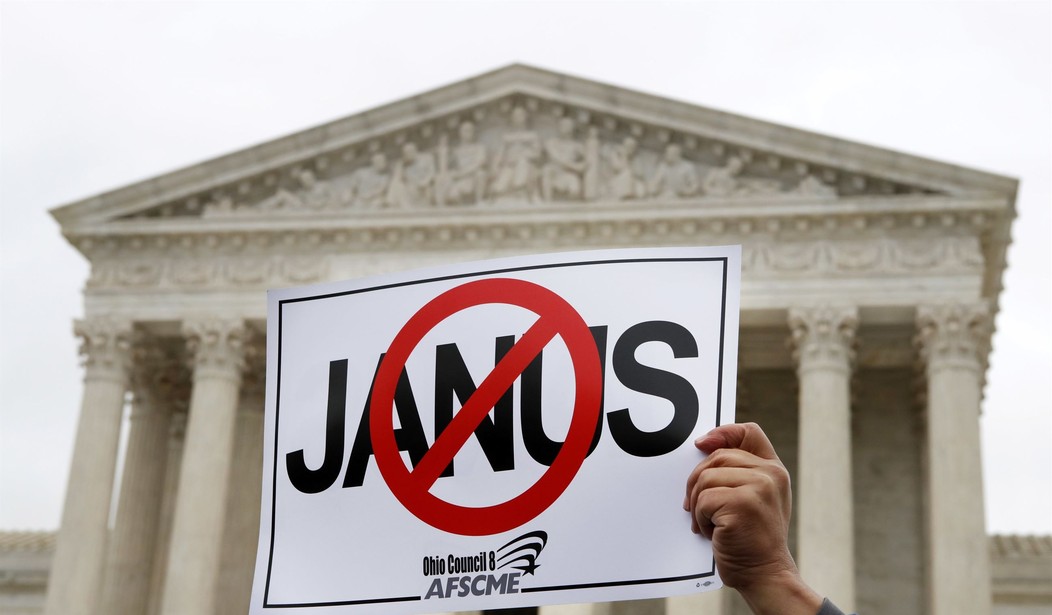In the real world, if someone stole your checkbook and used it to make an expensive purchase, no one would expect you to keep making payments for years while the retailer who accepted the forged check and the bank that cashed it pointed fingers at one another.
But in the murky netherworld of the government workplace and the unions that purport to speak for its employees, evidently, the standards are different.
Consider the experience of Sharrie Yates, a medical assistant with Washington’s Healthcare Authority (HCA) since 2004, who has spent the past three years watching the state confiscate union dues from her pay every month on behalf of the Washington Federation of State Employees (WFSE), despite informing the State and the Union that this membership card is clearly a forgery.
But to make matters worse, when Yates subsequently filed a lawsuit against the union and the state of Washington to resolve the matter, a judge at the District Court level somehow managed to conclude that neither could be held accountable.
“It’s a cockeyed interpretation of the law,” said Sydney Phillips, litigation counsel with the Freedom Foundation, which is providing Yates with pro bono legal representation. “The ruling says the union isn’t responsible because it isn’t a ‘state actor’ and, thus, isn’t acting in an official capacity. But the state isn’t responsible, either, because it exercises no discretion of its own and simply relies on the union to tell it which paychecks to deduct dues from.”
Apparently, only the forger him- or herself can be blamed. But unless someone steps forward and actually confesses to the crime, that also doesn’t seem likely to happen.
In the meantime, dues kept disappearing from Sharrie Yates’ pay every month — even though she informed the union three years ago she wanted to opt out.
In 2018, the U.S. Supreme Court ruled in Janus v. AFSCME that mandatory membership, dues, or fees in the public sector violate government employees’ First Amendment rights. But rather than complying immediately with the court and allowing employees to opt out freely, public-sector unions like WFSE hatched a variety of unconstitutional schemes to make the process as complicated as possible.
Not long after the Janus ruling was issued, for example, Yates tried to disassociate herself from WFSE only to be informed that, while she could end her membership anytime, her dues deduction could only be canceled if the application was submitted within a two-week annual window preceding the date on which she signed her membership card.
Certain she had never signed such an authorization, however, Yates demanded to see the membership card. In response, the union produced a copy of a crudely forged electronic signature.
At this point, no one seriously asserts the document is authentic. The question is whether it matters.
In June, Yates’ lawsuit was appealed to the 9th Circuit Court of Appeals, and WFSE’s lawyers are playing their familiar confidence game, complete with elaborate gestures intended to divert the court’s attention while they hide the pea of truth under a different shell.
In a motion to dismiss the case, the union is arguing that “(T)he First Amendment protects against government ‘compelled speech,’ not private theft or fraud, which is what the plaintiff alleges here.”
But that’s a deliberate misrepresentation of Yates’ case.
In fact, she isn’t arguing that the state and/or the union committed forgery — although someone obviously did. Instead, Yates asserts both parties, acting in concert, violated her First Amendment right to free speech and that the forgery was merely the vehicle for this violation.
But the vehicle didn’t arrive at its destination until the state wrongly deducted dues from Yates’ paycheck based on WFSE’s fraudulent instructions to do so.
This isn’t a criminal forgery case. It’s a civil lawsuit over the violation of someone’s Constitutional rights, and it doesn’t matter if the means used were forgery, misrepresentation, coercion, or mere happenstance.
The state and the union continue to advance the idea that the civil rights violations against Sharrie Yates aren’t of the sort the judicial system can remedy.
They’re about to find out just how wrong they are about that.














Join the conversation as a VIP Member